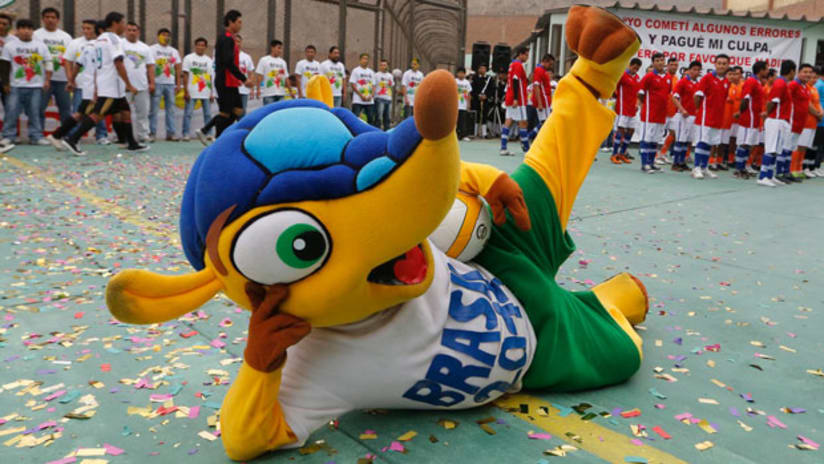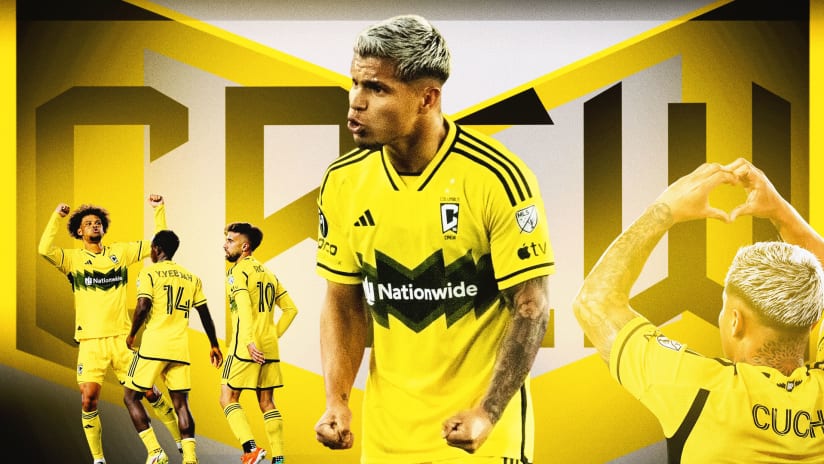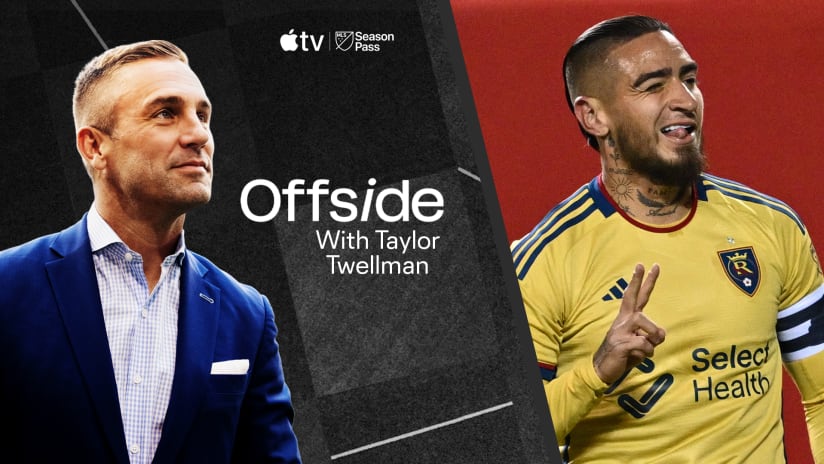LET’S START WITH THE ARMADILLOS: At the very least, they’re first in alphabetical order. Anyways, Brazilian conservationists have added themselves to the long list of organizations that have a gripe with FIFA. At the center of the conflict is the Brazilian three-banded armadillo, a species found exclusively in the tropical dry forests of the country’s northeast that was listed as “vulnerable” 20 years ago.
It’s only gotten worse in the last 15 years, as the armadillo’s forest habitat, called Caatinga, has dwindled by about 50 percent. OK, but what does this have to do with FIFA? One of the mascots of the World Cup, Fuleco, is a three-banded armadillo. Conservationists want about 2,500 acres of Caatinga declared as protected area, and are calling on FIFA to designate a greater portion of revenue from merchandise sales featuring Fuleco to help finance the armadillo safe zone.
STADIA: São Paulo’s Itaquerão Stadium will be hosting the first game of the 2014 World Cup, a June 12 matchup between hosts Brazil and Group A opponents Croatia. It will be an historic occasion. After all, it will be the first time the stadium is filled to capacity. That’s not a dig at fans of the club team that is slated to occupy the new venue, Corinthians. They tried their best to fill the ground, but were prevented by the fact that 25,000 seats were kept empty because they hadn’t been given approval by the fire department.
Work continues on the stadium in Natal, where the US will play their first game, and according to FIFA secretary general Jérôme Valcke, they are in a “race against the clock” to get everything ready to go for the tournament. Expect the next few weeks to be slightly stressful for organizers.
SCANDAL: The soccer community was rocked this week by a report from London’s Sunday Times that Qatar’s bid for the 2022 World Cup was, as plenty of people had surmised after the vote in 2010, aided by bribes. It’s alleged that former FIFA vice president Mohammed bin Hammam, a Qatari national, shelled out more than $5 million to buy votes from members of the Executive Committee.
Qatar’s organizing committee responded by saying that bin Hammam was never officially involved with the bid, while alleged bribe recipient Issa Hayatou, president of the African Confederation, categorically denied the Times’ report. Should the allegations prove true – and the results of FIFA’s inquiry will be released in a matter of weeks – then at least one FIFA executive says that the federation might hold a re-vote for the 2022 Cup.
IF IT AIN’T BROKE: While the Sunday Times was publishing its report on bribery, The New York Times was releasing a series of stories about the problem of match-fixing in international soccer. It’s a massively lucrative industry, and the World Cup is a particularly juicy target. At least one Cup-bound team – Nigeria – has already been targeted in a pre-tournament friendly. FIFA’s head of security says that the organization has identified teams and groups that are “vulnerable” and is expecting the most common fix to be related to number of goals scored.
HOLY S*: OMG OMG OMG Cristiano Ronaldo is suffering from a knee injury. No one knows at the moment how severe the injury is or whether it will hamper the Portuguese superstar when the games begin, but suffice it to say that it can’t hurt the US’ chances of getting out of Group G if Ronaldo can’t go on June 22 when Portugal and the USMNT face off in Manaus. That said, even if he recovers from the injury, he’ll still have to contend with – along with the rest of Portugal’s team – an outbreak of dengue fever in their training city of Campinas.
THE WALKING DEAD: While the Portuguese bite their fingernails to the quick over an injury to one very high-profile player, the German national team is dealing with knocks to Manuel Neuer, Philipp Lahm, Bastian Schweinsteiger and Marcel Schmelzer. But the Germans aren’t the only team in the world to be sweating their injury report. Mexico’s Luis Montes suffered a gruesome broken leg in El Tri’s friendly against Ecuador on Saturday in Arlington, Texas.
Montes was taken to Guadalajara for surgery, arriving at the hospital still wearing his game shirt. Italy, meanwhile, lost midfielder Riccardo Montolivo to a broken leg suffered in a Saturday friendly against Ireland. Closer to home, Costa Rica and Real Salt Lake striker Álvaro Saborío will miss the World Cup with a broken foot.
GUESS WHO’S (NOT) BACK: New Jersey-born Italian striker Giuseppe Rossi is not injured right at the moment – he recently returned from a lengthy stint on the DL – but he still will not be going to Brazil with the Azzurri. Colombian striker Falcao will also miss out on the World Cup after losing his race against the clock to recover his match fitness after a knee injury in January.
BETTER KNOW A WORLD CUP CITY: Quick, what season is it in Manaus? It’s actually not as hard a question as you think, because there are only two options. “There are two seasons in Manaus,” the local saying goes. “Summer and hell.” The good news is that Manaus really is a major city, with almost 2 million inhabitants.
The bad news is that the traffic is terrible, the murder rate is high even by Brazilian standards, and there’s no major soccer team, so the construction of the $300 million stadium and the event organization have proven to be a huge headache for everyone involved. But this is all you really need to know: Do not urinate in any body of water. If you don’t believe me, look up what a “candiru” is.
EVERYBODY! While the world quivers with anticipation for the World Cup, a set of small villages deep in the Amazon are embroiled in their own soccer tournament: the Active Forest Cup. Nestled along the banks of a tributary of the Amazon something like 400 miles upstream of Manaus, three small villages decided to organize a regional tournament to commemorate the World Cup. Given the limited transportation options, the tournament, which began in April, will run until September.
MEANWHILE, IN COLOMBIA: Much like the villages contesting the Forest Cup, the town of Nobsa, Colombia, is also holding a small-town soccer tournament to commemorate the World Cup. To be fair, it’s not an unusual idea. What’s unusual about Nobsa’s tournament is that the players are sheep. That is not a typo or a euphemism. If you want to see a sheep dressed as Neymar, you will watch this video.
PLAYING DEFENSE: Preparations for the World Cup have drawn intense criticism and have helped spark protests throughout Brazil. According to Brazilian President Dilma Roussef, however, the anger is misguided. The only country that would have been able to pull off an event like this without any hiccups, she says, is “maybe China.” Delays, protests and clunky bureaucracy are part of “the cost of our democracy.” Another possible cost? The Brazilian economy, which has slowed down dramatically through the first few months of 2014.
SEXUAL HEALING: We already know that Mexico head coach Miguel Herrera doesn’t want his players getting frisky at the World Cup. Asked about it this week, Herrera’s US counterpart Jurgen Klinsmann indicated that he was OK with it. But which coach is making the better decision for getting the best performance out of his team?
Based on the scientific evidence that we have right now, it probably doesn’t matter either way. There’s nothing to suggest that abstinence improves performance, and since the average man burns about as many calories having sex as he would doing 20 minutes of yard work, there’s nothing to suggest that sexual activity is so strenuous as to affect an athlete’s ability to train.
POINT, COUNTERPOINT: Klinsmann is worthy of every profile that is written about him, because he is in fact a World Cup winner, a European Championship winner, a two-time UEFA Cup winner and scored more than 230 goals in his club career. Still, things got wacky on Wednesday as in-depth profiles from The New York Times and The Wall Street Journal respectively claimed on the exact same day that 1) Klinsmann is trying to make US soccer less American; and 2) Klinsmann is trying to make US soccer more American. Is anything even real anymore?
ONE MORE TIME NOW: Goldman Sachs claimed in a 67-page analytical report released last week that Brazil were going to win the World Cup. Allow EA to retort. According to the company’s simulations on the newest entry into the FIFA videogame series, FIFA 14, Germany are the ones who will be lifting the trophy come July 13. The Economist, meanwhile, has released its own sets of predictions. The magazine's staff also thinks Brazil will win, but more importantly, they created an interactive infographic so you can see each of the 32 teams’ chances of making it to each round of the tournament. It’s fun, and you should check it out.
ADNAN JANU-PSYCH: Belgian wunderkind Adnan Januzaj made his international debut last week for the Red Devils in a 5-1 win over Luxembourg. Or, at least that used to be the case, but on Wednesday, FIFA announced that it had stricken that match from the record books because Belgium used too many substitutes. Officially, at least, the next time Januzaj steps on the field for Belgium will be his first cap.
BRAZUCA: When you see the official match ball of the World Cup on TV, there’s a decent chance that it was manufactured by the women of the Forward Sports factory in Sialkot, Pakistan. In a country where women are usually expected to be housewives rather than employees, the factory shook the trend by hiring women to make up about 90 percent of the workforce, ostensibly because they are more “meticulous” in their work than their male counterparts.
Meticulous or not, the factory has churned out Brazucas at a breakneck pace, with 50,000 delivered to FIFA from November to April. Pakistan won’t be playing in the World Cup, and the country is more into cricket than soccer – one of the women interviewed didn’t know who Lionel Messi was, for example – but there’s still a certain amount of pride in the fact that the players are going to be kicking around what’s supposed to be the best ball ever devised, and that you helped create it.
THE SPY WHO WASN’T: England were about to board their plane to Miami on Sunday when captain Steven Gerrard noticed that there was something amiss. What sinister plot did Gerrard foil, you ask? Comedian Simon Brodkin had dressed in the same kind of suit that the rest of the English players were wearing and tried to get on the plane. It didn’t work. Turns out the most interesting thing that the team brought to the US was Leighton Baines’ guitar.
MUSIC: Remember the vuvuzela? Brazil has tried making their own instrument for the World Cup, a rattle called the caxirola. Before you start bracing for a sound “somewhere between a baby’s rattle and a rain storm on a tin roof” echoing throughout the stadium, be calmed. Caxirolas have been banned from all 12 venues. And while we’re here, you can visit this link to hear some of the Brazilian music that has emerged in the lead-up to the World Cup. Very little of it is particularly flattering to FIFA, but hey, at least it’s not Pitbull and Jennifer Lopez.
ONE SMALL STEP FOR MAN: One giant kangaroo leap for mankind. Let the record show that the Australians were the first team to arrive in Brazil.
COLLATERAL: Now’s not the time for a comprehensive discussion of the conflict between Israel and Palestine, because if we were to recap its entire history and all its nuances, you’d be sitting here reading this piece from now until the day you died.
Suffice to say this: The conflict is, at the moment, bleeding into the realm of soccer, and its effects are probably going to be felt at the FIFA congress in São Paulo on June 10. The issue stems from travel restrictions on Palestinian players, and the head of the Palestinian FA is calling for unspecified sanctions – probably expulsion from FIFA – against Israel. While in Jerusalem last week, FIFA president Sepp Blatter told reporters that he hoped the two sides could hammer out a “memorandum of understanding” before the Cup.
THE PRESIDENTS: Blatter and Brazilian President Roussef appeared at the presidential palace on Monday. Blatter presented Roussef with the World Cup trophy and said he was hopeful that 2014 would be the “best World Cup in history.” Unfinished stadiums and mass protests pose a significant obstacle, you’d think, but a man can dream. Among Blatter’s dreams is another term as FIFA president, but just because he’s thrown his hat into the ring doesn’t mean his opponent, Jerome Champagne, is pulling his out.
“In a democratic system we need more than one candidate,” Champagne told The Associated Press, “and I hope more than two candidates, because we need different points of views and we need two different options given to the voters.”
SO CLICHÉ: There are certain assumptions that soccer fans make about teams in the World Cup even before seeing them play. Brazil are unstoppable on free kicks. African teams don’t defend. England stink at taking penalties. But are these tropes myth or reality? Take a read, ladies and gentlemen, as the BBC digs into the numbers.
MOURINHO’S WORLD CUP PICKS: Come on. Click it. You know you want to.
SOME LIKE IT HOT: There’s been plenty of concerns raised over temperature at the World Cup in the last few weeks. The Brazilian players union sued FIFA in an attempt to change afternoon kickoff times and implement mandatory water breaks, and Blatter recently said that awarding the 2022 World Cup to Qatar was a “mistake” because it’s just too hot to play there in the summer. (No kidding?)
But let’s not be too self-righteous about this, because 20 years ago players and coaches alike were complaining about the stifling heat in the good ol’ U S of A. But there were also a few young kids watching the games back then who decided that they loved the game, and now they’re playing for the US national team. So I guess Germany and South Korea suffering on the sun-baked grass of the Cotton Bowl was worth it after all.
#HASHTAG: Are you hip? On social media? Maybe even a tech-savvy “Millennial?" Well then, my friends, you are in luck, because FIFA now has a handy-dandy guide for people who can’t get excited about the biggest sporting event on the planet unless they’re able to tell people about it on Twitter.
ROOMS BY THE MINUTE: Hotel rooms are hard to find in Brazil at the moment, so what’s a traveller to do? Well, you can always get a room at Fetish, a motel that charges patrons by the hour for the use of their facilities. As it turns out, these motels have become very popular in Brazil, and they’re actually a pretty good deal if you’re looking to save money. How you explain to your parents or significant other what you were doing at a place called Fetish when it appears on your credit card bill is entirely up to you.
ARE YOU AN ANNOYING WORLD CUP FAN? Lists that claim to provide “The 10 Types of Outrageously Annoying World Cup ‘Fans’” (emphasis added) is usually going to be forced BS, because it assumes that there are only 10 types of annoying World Cup fans and that if you do not read this list, you will be forever in the dark regarding this crucial piece of information. Now, that said, this list is pretty spot on. Take a read to identify what egregiously obnoxious behavior you will encounter starting next week, and if you fit into any one of these categories, for goodness' sake, sort yourself out.
Бойкот: It seems weird that an owner of an NHL team in Canada would be seriously invested in what happens in the 2018 World Cup in Russia – after all, Canada won’t be participating (HEYO!) – but Ottawa Senators owner Eugene Melnyk is already trying to start a boycott of 2018 sponsors before the 2014 Cup even begins. Melnyk, whose parents are Ukrainian, is chair of “United with Ukraine,” an advocacy group that has spoke out against Russia’s annexation of the Crimean peninsula.
ADRIANA LIMA DOING … SOMETHING: Adriana Lima is Brazilian, but that seems to be the extent of her connection to the World Cup. But here she is on Fox & Friends talking about it, and then talking a lot more about Amazonia Beverages, and then dancing for a little while. TV is weird sometimes.
WHAT’S IN A NAME: If you’re sweating the pronunciation of a player’s name in advance of the World Cup, sweat no more. This website has an audio recording of players’ names by a native speaker of whatever language that name comes from. It’s not perfect – Matt Besler and DaMarcus Beasley’s names got pretty rough treatment – but it is pretty cool nonetheless.
WHERE TO WATCH: So now that we’re a week away, let’s get down to brass tacks. Where are you going to be watching the games? This is by no means a comprehensive list, but if you’re in the mood to watch outside in San Jose, at a beer garden in Portland, or really any bar in New York, then we’ve got you covered.











